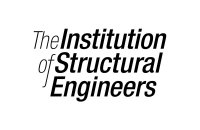In recent decades, environmental assessment (EA) has emerged as one of the key environmental law mechanisms. The essence of EA is that information about likely environmental impacts created by infrastructure and other development projects are identified. In addition, plans and programmes must be properly considered before potentially harmful decisions are made.
This course looks at the practicalities of complying with the law, and the questions to consider when conducting or analysing environmental assessments.
Aims & Objectives:
To examine current practice, legislation and case studies to understand EA in an up-to-date commercial context.
On completion of this course, delegates will be able to:
- Describe EA, EIA and SEA and distinguish between them
- Determine which type of assessment to apply to any particular project
- Analyse and evaluate different methods of determining aspects and impacts
- Be able to evaluate how EA is used in practice and contrast examples in different countries
- Discuss topical projects, introducing relevant and current examples and precedents
- Identify the issues and challenges in using law to protect the environment
Course Outline:
- Introduction to EA
- EA in international law
- Is the project subject to EA?
- Significant effects - thresholds and discretion in decision making
- Exemptions from EA
- The Environmental Statement
- Determining EA applications - weighing up environmental information
- What if effects have been considered without EA?
- Environmental Impact Assessment - its effects on decision making
Mode of Delivery:
The training session is interactive, with group discussions and workshop activities:
- Initial assessment
- Interactive exercises
- Individual or group exercises
- Discussion
- DVD
- Open workshop
- Summary of learning
- Final Assessment
Delegates attending this course will enjoy a busy but enjoyable session drawing on studies of the latest projects and legislative changes to keep bring their existing knowledge of this area up-to-date.
Intended For:
Engineers, planners, architects, developers, project managers and lawyers will all gain from this course. Prior knowledge is required as this course will focus on applying that knowledge in studying current cases, projects and trends.
Pre-Course Requirements:
- Complete a pre-course questionnaire
- To have attended "Environmental Assessment - An Introduction" or have prior knowledge of EA








